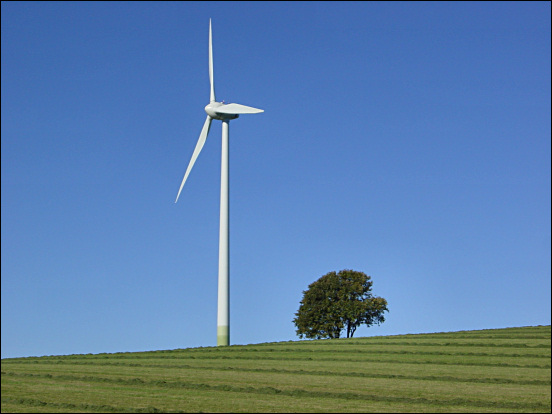

The human mind isn't simple, but it adores simplicity. Give most people a complex situation and they'll automatically opt for simplicity; often as not, too simple. For example, mention alternative sources of energy, and most people think "free energy!" Unfortunately, its not. Any source of energy that we can use requires an initial input of energy—the figure we really need to know is the ratio of energy input compared to energy output. For example, wood biomass can be converted to electricity with a ratio of about 1 unit input to 7 units output. On the other hand, using grains for biomass energy generally requires a greater input than energy output!
Local biomass energy isn't going to help us in the desert, but wind
power has possibilities. Energy input to manufacture and install wind turbines results
in an input:output ratio of about 1:5 under ideal conditions. But backup power for poor
wind conditions or connections to electrical grids adds greatly to the energy input
costs. The only simple thing seems to be that there's still "No free
lunch"!

Listen to the Audio (mp3 format) as recorded by KTEP, Public Radio for the Southwest.
Contributor: Arthur H. Harris, Laboratory for Environmental Biology, Centennial Museum, University of Texas at El Paso.
Desert Diary is a joint production of the Centennial Museum and KTEP National Public Radio at the University of Texas at El Paso.

Freiamt Windpark near Freiburg, Germany; 1.8 MW Enercon generator. Image by Rian van Staden.